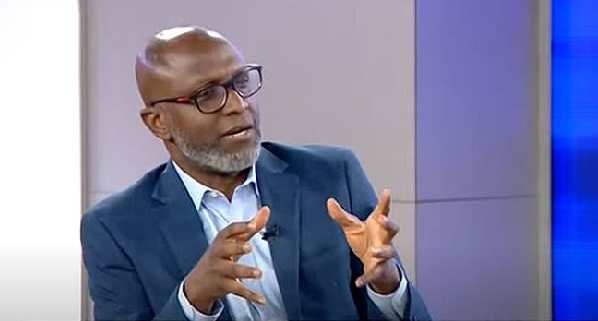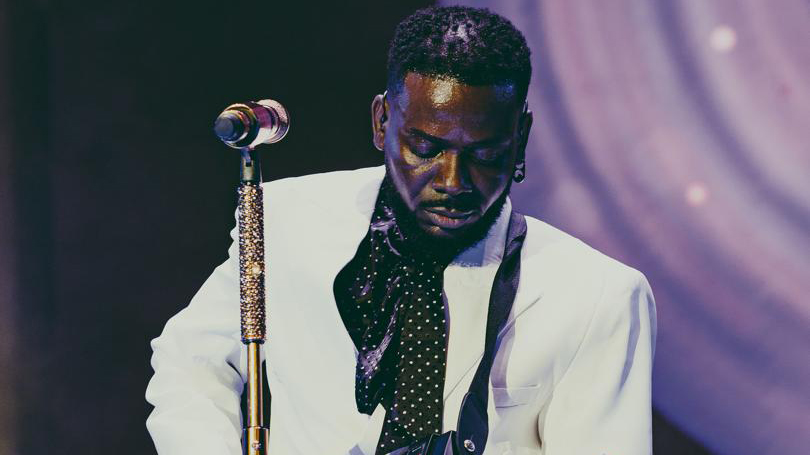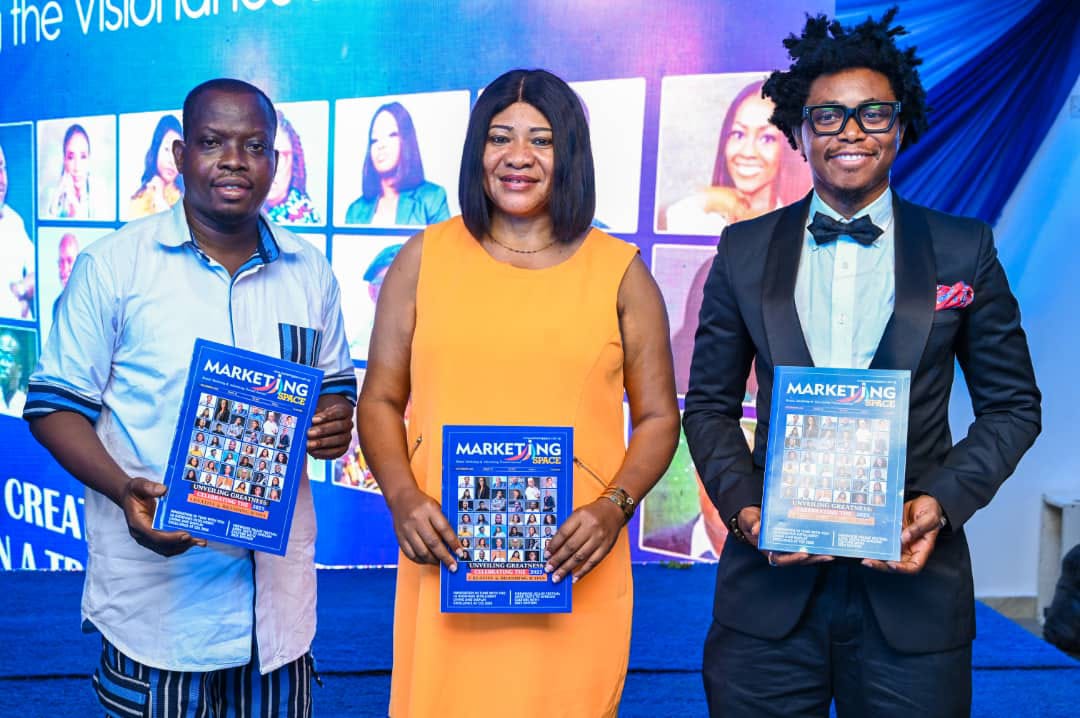
Top media practitioners, political and business leaders, diplomats, scholars, activists and other stakeholders converged on Friday, September 20, 2024, for a virtual dialogue on “The Media of the Future,” a side event of the Black Futures Summit holding on the sidelines of the 2024 United Nations Summit of the Future in New York, United States of America (USA).
The UN Summit of the Future is holding during the 2024 United Nations General Assembly (UNGA), which will feature high level debates by leaders from different countries of the world in New York.
The theme of Black Futures Summit, ‘The Media of the Future: Bridging the Gap Between the West and People of African Descent,’ was facilitated by Global Patriot Newspapers (GPNews), and featured as panelists, chief executive of the Nigerians in Diaspora Commission (NiDCOM), Abike Dabiri-Erewa; Editor-in-Chief, Empowered Newswire, Laolu Akande and spokesperson, Permanent Mission of Sierra Leone to the UN, Nicky S. Coker Esq.
Others include Director, Africana Institute, Essex County College, New Jersey, USA, Professor Akil Khalfani; CEO AfricaRelated, Oyiza Adaba; President, African American Future Society, Yul Anderson; CEO of The Cable Newspaper, Simon Kolawole and CEO, Nazarau, Toyin Umesiri.
Pan-African media professionals were encouraged to create a collaborative network for sharing positive African stories and to reduce reliance on Western news agencies for African content.
While experts advised diaspora professionals to explore investment opportunities in African media, African media organisations were implored to explore ways to develop and support African-owned media platforms and to improve working conditions and timely payment for journalists.
Media professionals were asked to increase coverage of African diaspora communities worldwide and to educate themselves on African history and cultural perspectives to inform reporting.
Stakeholders also tasked media professionals on development of African-centered critiques of global issues and events while focusing on telling African success stories and highlighting positive developments.
Media organisations were equally urged to invest in capacity building and education for African journalists and develop strategies for incorporating artificial intelligence in journalism to prioritize coverage of the African Continental Free Trade Agreement (AfCFTA).
Former Vice President, Yemi Osinbajo, encouraged the creation of more awareness on the importance of shaping narratives about Africa and Nigeria.
In a message conveyed by Akande, former spokesperson of the Vice President and Editor-in-Chief, Empowered Newswire, Vice President Osinbajo expressed support for the development of African-centred critiques of global issues and events while focusing on telling African success stories and highlighting positive developments.

Chief Executive of the Nigerians in Diaspora Commission (NiDCOM), Dabiri-Erewa, stressed the need to change the negative narrative about Africa and Nigeria, suggesting that Africans should control their media and invest more in the continent.
She highlighted the potential of the African diaspora, particularly in America, to contribute significantly to the continent’s development.
Dabiri-Erewa also criticised the treatment of Africans by other Africans on the continent and encouraged the media leaders and professionals to focus on promoting trade and collaboration among African countries.
She stressed the challenges faced by Nigerians, especially diaspora Nigerians in investing and owning homes in Africa, and mentioned the Diaspora Commission’s programs to facilitate home ownership and investment opportunities.
Abike emphasized the need for collaboration between Nigerians at home and abroad to change the narrative about Africa through initiatives like the upcoming diaspora investment summit.
“As Chairman of NIDCOM within the last five years, I’m shocked about what is still being said about Nigeria and Africa. People still ask me if we actually are living in a civilised world. This is because the narrative is not being controlled by us.
“We have to change the narrative; we don’t have to rely on CNN and BBC to tell the world about what we are doing. What is stopping us? We have seasoned media practitioners. I know it is expensive, I believe we can do it”.
Akande, in his capacity, highlighted the significant gaps in understanding and representation of Africa globally, emphasising the need for a more nuanced and empathetic approach to understanding Africa and its people.
He identified four gaps hindering Nigeria’s development, including the gap between the elite and the masses, the gap between the elite and the media, the gap between the elite and the people, and the failure of political leadership to deliver national development.
Laolu stressed the importance of the African elite taking responsibility for the continent’s fate, human capital development, and infrastructure. He also highlighted the need for media leaders to invest in journalism and for African billionaires to fund media outlets to shape narratives about the continent.
Spokesperson for Sierra Leone’s mission to the UN, Nicky S. Coker, who shared her background as a lawyer and activist, highlighted the significant role of media in shaping society and narratives, emphasizing the challenges faced by people of African descent in gaining access to media outlets, even in the diaspora, and having their stories accurately represented.
She highlighted the low percentage of black-owned media in the United States in contrast to the rapid expansion of media in Africa due to advances in telecommunications.
Nicky pointed out the influence of American media on perceptions of Africa, often leading to negative and stereotypical portrayals. She also stressed the importance of African voices being heard and the need for more African representation in media and leadership roles.
Professor MO Ene, also known as Chairman Moe, a tech entrepreneur and one of the two moderators of the dialogue, discussing his transition from analog to digital media in West Africa, emphasized the importance of knowledge and content in the media industry.
He highlighted the lack of awareness about the innovative and creative abilities of black people and stressed the need for Africa to become part of the global community through media.
Professor Ene also shared his experiences in building a tech group and digital retail, encouraged media professionals to find financial resources to develop their own media platforms, driven by technology.
The meeting focused on the future of Africa and the role of media in shaping its narrative. Speakers emphasised the importance of Africans controlling their own narrative and having a clear vision for their future.
They criticised the tendency to repeat negative portrayals of Africa from Western media sources and called for media professionals to up their game to gain respect and credibility.
The speakers also highlighted the issue of low trust in African media and the reliance on Western media sources. The conversation ended with a call for Africans to take control of their own destiny and to be proactive in shaping their future.
Global influencer and CEO of Nazaru, Toyin Umesiri, emphasised the importance of wealth creation and productivity in building economies, rather than focusing solely on poverty alleviation.
She stressed the challenges of promoting business and trade with Africa, particularly, I America, and stressed the need for individuals to take control of their own narratives.
Umesiri argued against focusing on poverty alleviation and foreign aid, stressing the need to prioritize skills for sustaining economies, attracting investment, and creating wealth.
“Conversations ought not to be centred on poverty alleviation but wealth creation. The missing link is that too much focus is placed on poverty and having conversations around poverty cannot create wealth. Principles of wealth creation itself ought to be the focus. In building an economy, the focus has to be on productivity,” she said.
Director of African Institute, Wessex County College, New Jersey, Professor Akil Khalfani, emphasised the need for a rethinking of journalism and media representation, advocating for a Pan African approach that utilises a historical foundation to tell the story of Africa and African people.
He criticised the European-centric approach and suggested that African history and culture should be presented with a broader perspective. Akil also highlighted the significance of African organizations and the need for African-centered strategies and critiques of other perspectives.
Prof. Khalfani stressed the importance of Africaniing ways of doing business, global commerce, and thinking about identity. Lastly, he mentioned the upcoming 9th Pan African Congress in Togo and the need for Africans to take ownership of their narratives and experiences, rather than relying on others to dictate their story.
Discussions also touched on the need for better oversight and re-branding of journalism in Nigeria, with a focus on self-representation and telling Africa’s stories by Africans.






